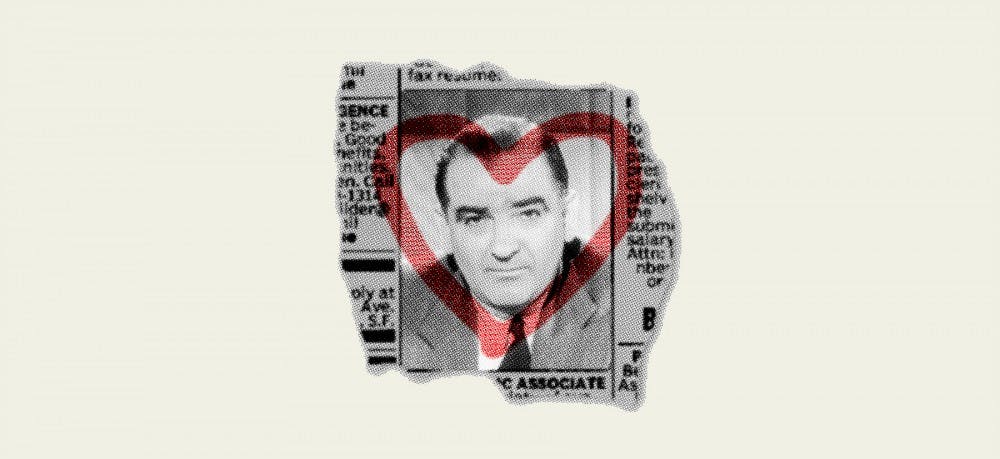Money. We all want it. We want the comfort that it brings. The things that it can buy hardly matter more than when there isn't enough of it to cover their cost. And while money might not buy happiness, but it can certainly buy peace of mind. And even if that peace of mind is as paper thin as the currency traded in for it (and often it is), every now and then, it's all that stands between the "us" that we know, and the "us" that would do anything to get more of it.
We, as Americans, have a love affair with capitalism. We love it when it works, and hate it when we fuck it up. But somewhere between the Uncle Sam-with-an-M16 vision of free trade, and the applied math of academic economics, lies a strange pseudo-ideology rife with misunderstanding and misattribution.
At some odd point in American history, the word "capitalism" became synonymous in the average American brain with a billowing flag, the word "freedom" floating abstractly in the background. There's a strange, juvenile quality with which we view our national trade system, somehow constituting more than the simplest and most efficient system of trade discovered thus far. Capitalism is, of course, by no means easy to quantify; there's a reason that those with the best understanding of the markets always seem to be doing the best in them. But there's also a reason that almost every short-seller inevitably makes the wrong bet and every world-renowned economist fails to predict a major market reset. This is where the illusion gets shattered. Capitalism, as it turns out, is not a religion to be worshiped in the temples of Keynes and Marshall, but a complex and sometimes wholly abstract grouping of billions of transactions occurring every day, the sum of their parts painting a picture that looks a lot like an invisible hand if you squint your eyes and tilt your head.
Of course, where capitalism is brought up, communism isn't far behind. Marx and his followers will not be brought up once in your average Econ 101 lecture, and for good reason. Marx, though undoubtedly a brilliant and noteworthy mind, would not be recognized by modern economists as a colleague. He belonged to the early days of economists, back when the term was indistinguishable from its philosophical roots. Marx and his Communist Manifesto were a treatise on humanity, not efficiency. Whether his thoughts on class relations were right or wrong, only time will tell. But his theories, and the ideology they spawned, are ironically the origin of the love with which we view our own trade system.
Back in the 1950s, income and wealth inequality were, in aggregate, lower than they ever had been or would be in the U.S. A new type of wealth became available to white Americans, the type of wealth that could be invested in homes, in savings funds. The average white American began to live an unfathomably luxurious existence in comparison to the rest of the WWII-ravaged world. Things were good in the homes of the middle class families which began to populate the suburbs en masse, but there was danger on the horizon. Halfway across the world, and just close enough should they ever develop nuclear capabilities (they would shortly thereafter), the Soviet Union was playing bully ball to establish themselves as Europe's new greatest power. Two decades ago, this wouldn't have been much of an issue for the scrappy, isolationist Americans, but times change. The Soviet Union, with their stark vision of a future driven by and for the proletariat (at least in theory), represented an existential threat to the power newly held by the U.S.
In American homes, the red demon of communism became disembodied from the ideology it originally stood for. The threat of nuclear holocaust came to define the childhood experience of an entire generation. Yet, the Soviets were still represented in American propaganda as the successors of Hitler, a fresh premise until the day it wasn't anymore. The Soviets just weren't a good/bad guy. Then came Rand, an ex-Soviet writer with the same spirit of "leave me the fuck alone" as the cowboys on the television sets that began to occupy more and more free time in the average American home. All of a sudden, the Soviets weren't mini-Nazis anymore, they were automatons. What's scarier than a red wave of mindless, thoughtless robots dead-set on crushing your way of life?
Of course, no red dragon is complete without a knight in shimmering red, white and blue armor to chop off its head or get thermo-nuclearly annihilated in the process. So that's what our politicians, Hollywood executives and culture-makers set out to do. In response to the "collectivist" wave, we became "objectivists." It was an efficient tactic, turning the thoroughly gray Cold War into a prize fight between freedom and mental slavery. It also turned communism and its little cousin, socialism into dirty words, and it associated capitalism with everything from Jesus to baseball to hot dogs.
matsonrm@miamioh.edu




